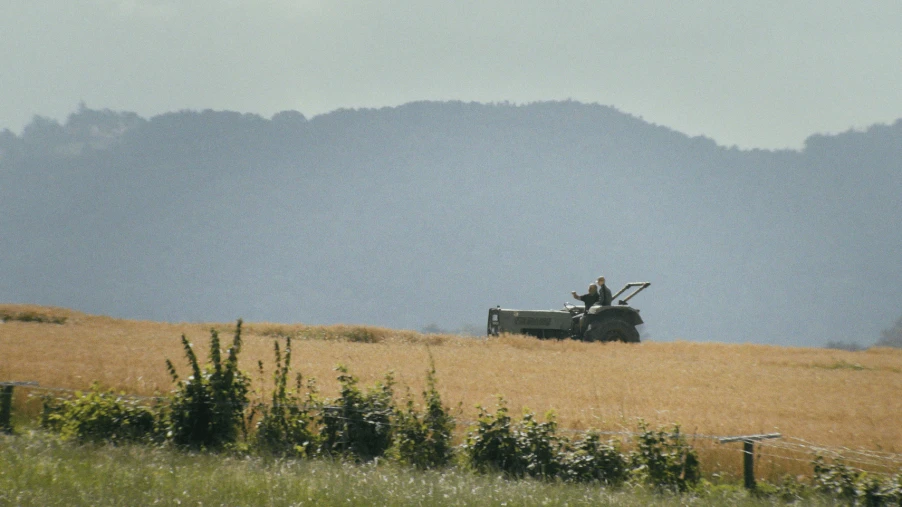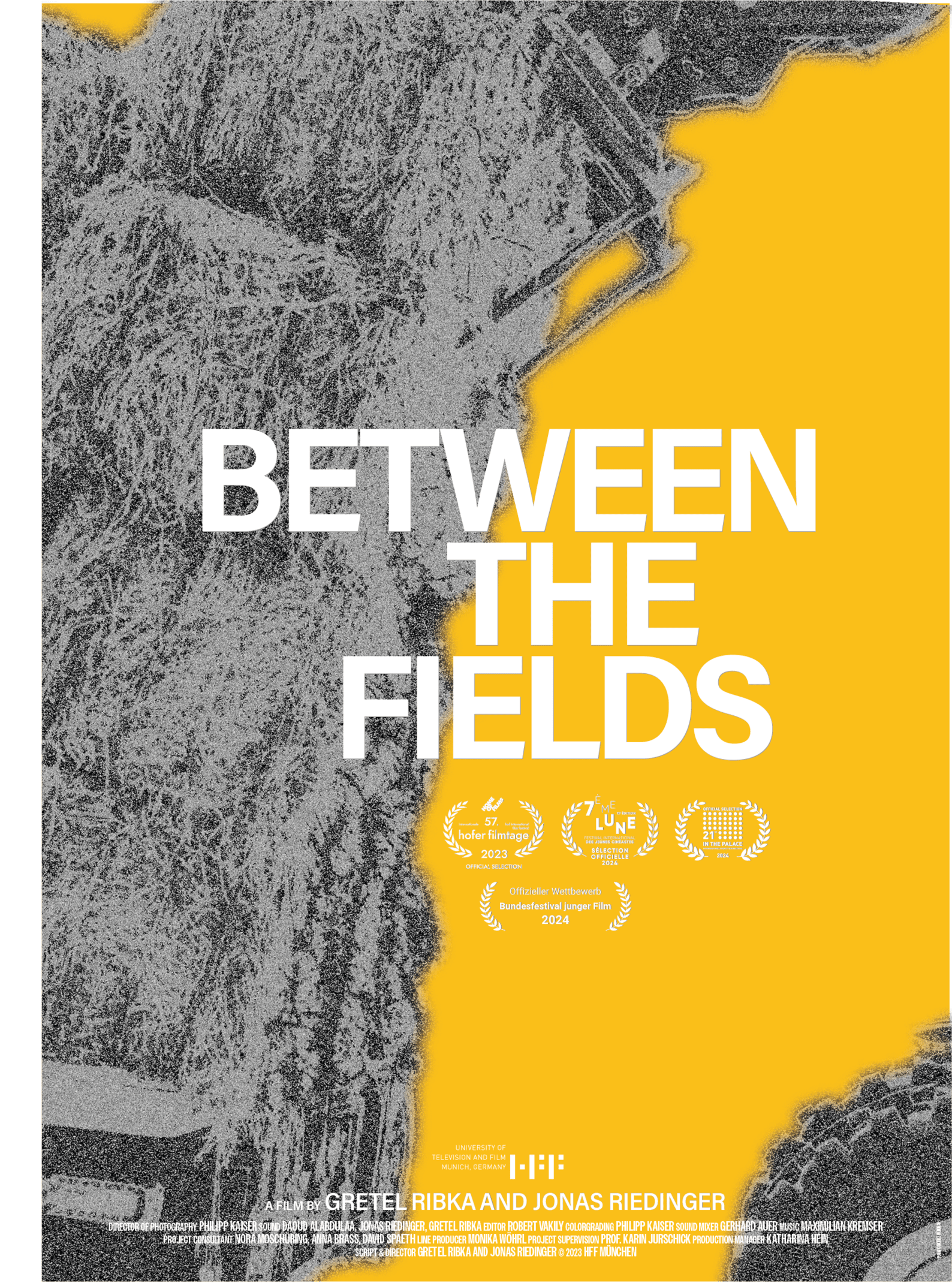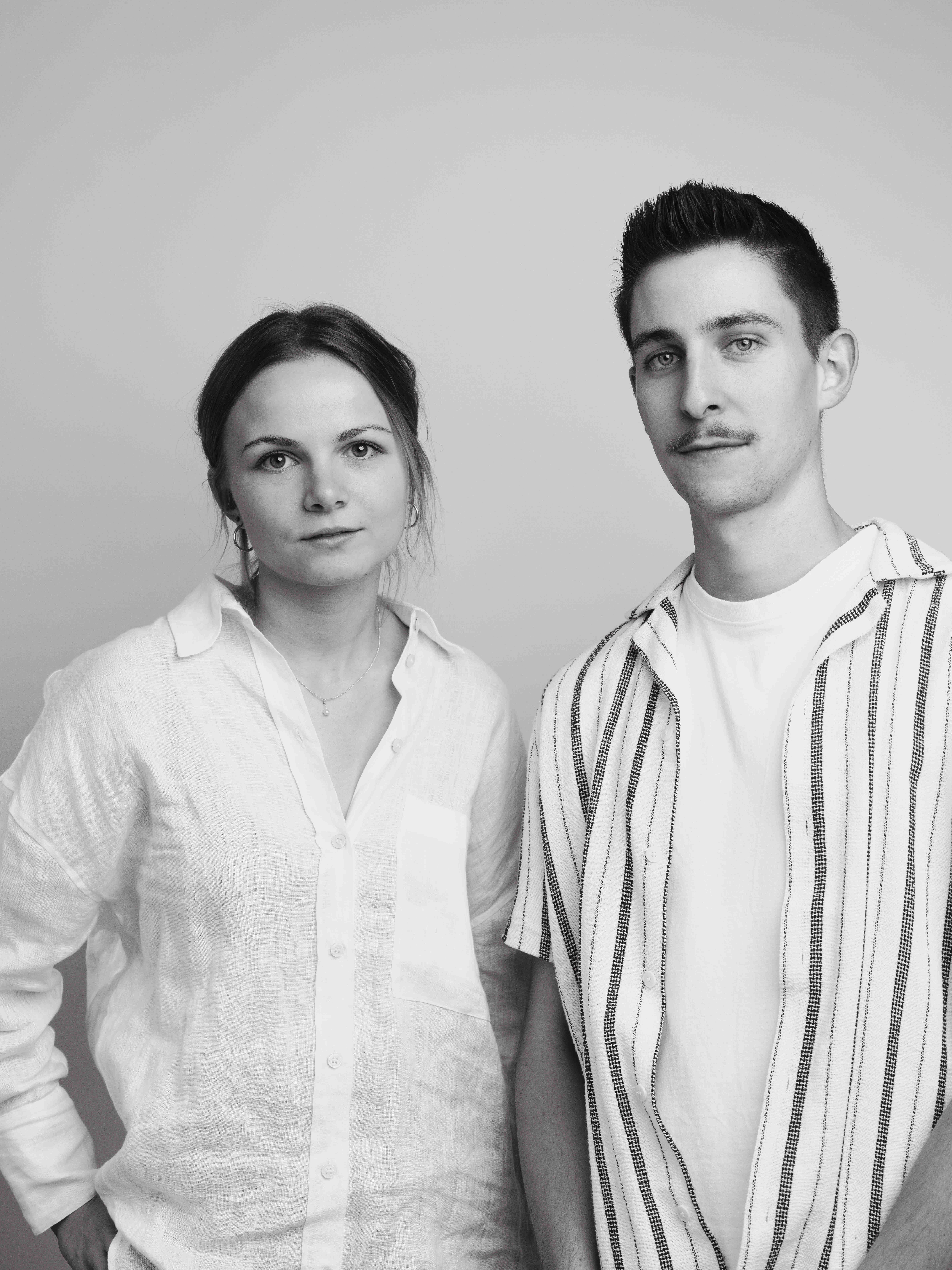COLLECTABLE STORIES: BETWEEN THE FIELDS

BETWEEN THE FIELDS
Short Talk with Jonas Riedinger (director) and Gretel Ribka (director)

Documentary / Germany / 2023 / 29'42"
BEST STUDENT DOCUMENTARY FILM Category
21st IN THE PALACE International Short Film Festival 2024
Synopsis: If you sit in a tractor all day, you have a lot of time to think. When Jürgen took over the farm from his father, he gave up rearing bulls and set up a contracting business. Agricultural machines now stand where there were animals in the past. Worn down by economic constraints, social expectations and hard blows of fate, the single father carries on working - day in, day out. He says: "Every farming father wants his son to take over one day." But what if the son’s health is in the balance?
Biographies: Born in 2002 in Landsberg am Lech, Germany. Since autumn 2021 Gretel Ribka has been studying Film and Television Documentary at the University of Television and Film Munich. Before studying, she acted and directed in different theater groups and developed own video projects.
Jonas Riedinger is a documentary film student and film editor based in Munich. In 2015 he studied Editing and Digital Post-production at the BAF Munich, where he gained his first professional experience in film and television business. Afterwards he did an apprenticeship as an Audiovisual Media Designer. He participated in various short format films, documentaries as well as fiction. Since 2021 he is studying at the University of Television and Film in Munich in the study course “Film and Television Documentary” with a focus on editing.

Gretel Ribka and Jonas Riedinger, Directors
Jonas Riedinger (director): We had a long research process before we started, and we met with a number of families, too. We took our time to get to know them and let them talk about their lives. Of course, we also remembered what it was that we wanted to show in the first place. We chose that family because we thought their stories were quite fitting, and their struggles were telling about agriculture in Germany, as well as in other countries. They were also pretty open to us and interested in the process of film making, the camera, the sound, etc.
Gretel Ribka (director): We started researching because we'd read that lots of people in agriculture struggle with mental health. We didn’t know this before and that interested us. We wanted to find out what it was like to be working long work days, 365 days a year. The farmers love their work and put much passion into it, but society doesn’t have much interest in it and doesn't appreciate what they do. They feel like they work and work, but no one really knows what they do and everyone thinks they do it the wrong way. Also, the future for lots of people in farming is quite uncertain and that’s exactly what our family was experiencing as we filmed. Their son is not quite sure he wants to take over like his ancestors did 100 years ago.
Jonas Riedinger: At the end of the film there is a sense of hope that perhaps the son will continue the business, but the father doesn’t [want to] force his son to do it. Of course, there’s heritage and tradition, and that’s a lot of pressure when you think of the generations have built this before you and consider that you might be the one who gives it up and says, no, I don’t want to continue anymore. It's a hard decision for the next generation.
_2mb.png)
Raya Hristova (journalist): What was it like filming in an open field with the heat and other weather conditions?
Jonas Riedinger: It didn’t rain for nearly eight weeks, so it was quite hot, but we also got the thunderstorm that we show at the end. In terms of what we wanted to capture we were quite lucky, but for the farmers and the plants it's very hard and the weather has been getting harsher and harsher in recent years. It was hard for us while film making, too.
_2mb.png)
Raya's Take:
Let’s be honest, how often do we think about the life of the farmers and the people, that dedicated their life to the agricultural business? Especially in recent years, wе can witness that most people now moved to the big cities and only a small number remained to live in the countryside. So, for us, all the fruits, vegetables and crops we need are on the shelves in the grocery store.
This is a real-life story of a family, that spent every day of the year doing a job, that's been passed down throughout generations. And you can see with what passion and care they do it. But we face a dilemma, a philosophical question here as well: will the next generation continue the family business? A very labor-intensive and time-consuming business, that is not really financially profitable, but happens to be their life’s work. This is a hard decision, that rests on the shoulders of their son. In the end it is hinted to us, that he chooses to keep the family tradition alive, which is something to reflect on.
The movie is structured in an interview format, which very well suites the category and perfectly reveals the background of the family and the essence of what the filmmakers want to deliver to us.
BETWEEN THE FIELDS is a nice escape from the fast-paced rhythm of life, that allows you to get an additional perspective on something, that seems like a very different lifestyle than ours.






